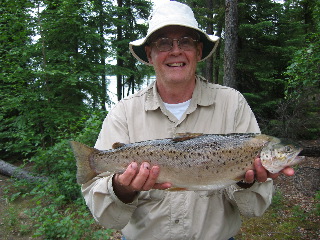Biography

David Carpenter was conceived in Saskatoon and born in Edmonton, where he grew up on Saskatchewan stories.
He moved to Saskatoon in 1975 and began writing the following year.
He spent 4 years working on a novel entitled The Loving of Michael Goggins, a modern version of A Midsummer Night's Dream. His main characters were a Titania-like young woman, a pudgy Bottom-like man, and an homme fatal disc jockey. It was a story of ill-fated love, despair, romantic disenchantment and all those youthful, fun emotions. He finished the novel in 1980 and it was rejected in 18 days, a Canadian indoor record.
That same year he finished his first short story and sent it to Saturday Night. They phoned him one evening when he was in his kitchen standing beneath a high beam. He had often tried to jump high enough to touch this beam, but he could never quite reach it. The editor told him that Saturday Night would like to "buy" his story. He had never heard that sentence uttered before. The editor asked him if $2,000 would be all right, and he told the man yes, that would be all right. Carpenter gave this reply in a tone suggesting that this sort of thing happened with boring regularity. When the phonecall ended, he leapt up into the air and slapped he beam above him and returned, very slowly, to earth.
His novel Niceman Cometh was his 10th book, a story about a Titania-like single mom, a pudgy Bottom-like dreamer, and a flesh-foolish disc jockey in the Saskatoon of the 1990s. He launched a new book of fiction in the fall of 2009, a collection of novellas entitled Welcome to Canada. These novellas and long stories were followed by a memoir about hunting, which includes a critique of modern hunting practices and the reasons Carpenter stopped hunting. A Hunter’s Confession came out in 2010 and won Book of the year at the Saskatchewan Book Awards in 2011.
During these years Carpenter was also at work editing the 3-volume Literary History of Saskatchewan, the last of which emerged in 2018. While this project was unfolding, Carpenter underwent a long correspondence with Augie Merasty, a Cree trapper/hunter who had undergone a brutal 9-year stay in a residential school. Their book came out in 2015 (1st ed’n) and 2017 (instructor’s ed’n) to wide acclaim over the past 4 years. Carpenter’s experience of working with Augie Merasty equipped him to write a novel about gold prospecting up north in the 1930s. The Gold (2018) brings white and Indigenous characters together in the struggle for survival in the contested territory around Yellowknife.
Carpenter is currently working on a collection of short stories about people who, among other things, have big conversations on the phone. Stay tuned.
Carpenter's writing credo is as follows (and it may not apply to poets): Most writers must learn to make a pact with dullness. Not boredom, or lack of imagination or passion, but dullness of routine. Keep your daily appointment with the computer screen and keep your ass on the chair until you've reached your daily quota. However rich your inner life may be, seek also the dullard within.
Media Writing and Performance
- has been interviewed many times on CBC radio and TV. This includes some interviews with Peter Gzowski and Shelagh Rogers and several readings of his work on both of their radio shows.
- a one-hour Ideas program for CBC Radio on the art of fly fishing was broadcast April 14, 1993 and re-broadcast several times throughout the summer and fall. He has since appeared several times on Ideas to speak about Western Canadian writers and regional identity.
- his work has twice been featured on CBC's The Arts Tonight with Eleanor Wachtel.
- several films have been made about Carpenter and his work. See sepecilly Down to Earth, Episode 12, by Zephyr Films Limited; and Through the Eyes of a Writer: Interior and Exterior Landscapes, by Reel Eye Media, Inc.
- has published many reviews over the years, most recently in The Globe & Mail, Canadian Literature, and the NeWest Review. He also published an anthology of Alberta writing (with Oberon) entitled Wild Rose Country.
- former fiction editor for GRAIN Magazine.
